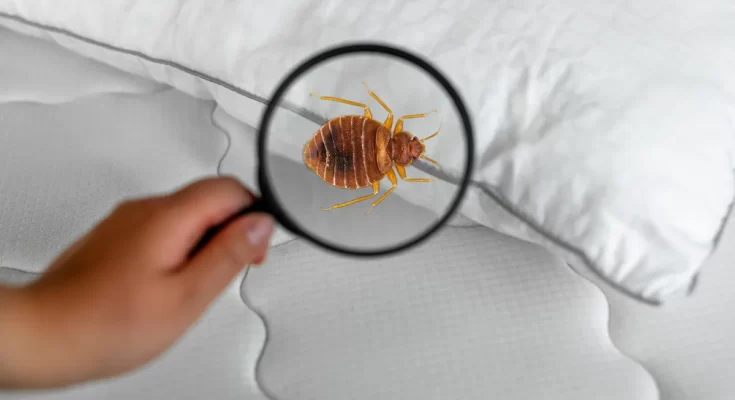Every industry in Illinois deals with its own set of problems, and the hospitality industry is no different. During the previous decade, the total number of bug infestations in the hospitality industry has significantly increased because of the increase in traveling distances and frequencies.
Due to the lack of knowledge and protocols on what steps need to be taken in an infestation situation, the problem is growing further. In addition to that, bed bugs are also developing resistance against insecticides, which makes it more challenging to eliminate them.
Bugs accompany humans, and they often spread from one place to another, affecting the hospitality industry. Suppose bed bugs have infested the commercial property. In that case, the owners should avail themselves of Belleville Exterminator Services to get rid of them as it affects the reputation of the place, which results in less business.
Bed Bugs Get Spread Through Cleaning Routines
In almost all scenarios, these pests are typically found around the bed because they want to stay close to the host. That is why bedding that is used tends to carry bed bugs, along with the risk of getting spread by the hotel’s cleaning routines.
Nymphs, eggs, and bed bugs that are grown into adults get taken in the brushes of the nozzles of vacuum cleaners, from one floor to another, from one room to another.
Bed bugs can spread through vacuum cleaners that are being used on several floors and laundry bags that lie in corridors containing dirty bedding. Such pests are also capable of spreading on their own.
The Cost of a Bed Bug Infestation
Getting treatment for bed bugs in hotel rooms can be costly. We are not merely talking about the pest control cost involved but also the revenue lost when the hotel is supposed to move a guest to another room till the treatment is ongoing. It is often the case that the adjacent rooms in the hotel need to be closed and treated as well.
According to a study by NIH, a bed bug infestation costs over six thousand dollars, which includes replacement costs, treatment costs, and lost revenue due to closing off the room.
In addition, such hotels are also at risk of receiving negative reviews from customers on numerous hotel booking websites. The study estimated a 38 USD decrease in revenue per hotel room for each negative review that was published.
Prevent Infestation with Bed Bug Traps and Tape
Establishing some unique cleaning routines along with having appropriate protocols in place for what needs to be done when a bed bug is discovered can undoubtedly help in tackling the issue before it turns into a whole infestation.
Bed bug tapes can be put as a preventive measure on hotel beds, along skirting boards and behind headboards, which functions as an ongoing and long-lasting treatment for bed bugs.
Detecting a bed bug problem can sometimes be challenging. Dropping and residues of bed bugs are easy to get mistaken for dirt. It is also hard to tell if the bites on the skin are from bed bugs or something else. That is where a detection trap shows its worth.
The detection traps can easily be placed inside a suspected hotel room or before a person shifts into student accommodation or a retirement home, for that matter. The traps prove whether such a problem exists there or not.
Suspect Bed Bugs? Time to Call Pest Control Professionals!
Bed bugs can be detrimental to a hotel and its reputation. Some owners avoid getting pest control because they consider it an additional cost, but the revenue lost because of such pests is significantly higher than the cost of hiring professionals.
A bad reputation affects the overall business and results in significant losses, and even if people choose to stay in your hotel as guests, they certainly will not have a good experience, which makes it less likely for them to book another stay in the future and may pass on a negative word of mouth.
Thus, it appears to be more rational to let professionals take care of the infestation problem.




